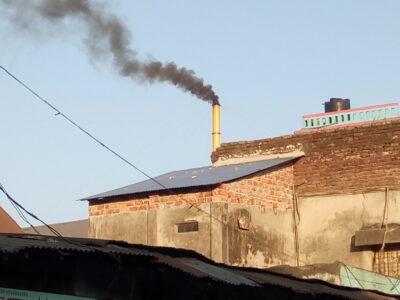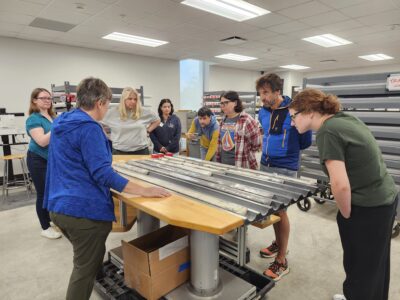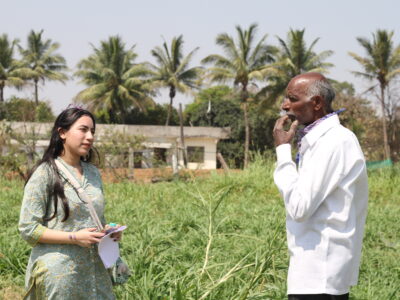
A native Yup’ik and Sāmoan, Charitie Ropati works to elevate Indigenous communities via activism and research, while also utilizing her Columbia Engineering education. Her focus on making an impact in her community through Indigenous activism dates back to 2019 within her school district in Anchorage, Alaska. Her work in providing an inclusive and comprehensive curriculum on Indigenous peoples led to the passage of a policy allowing students to wear their cultural regalia during graduation ceremonies, including the candy lei tradition that Ropati celebrates.
Just this winter, Ropati, a recipient of the 2023 World Wildlife Fund Conservation Leadership Award, gave a keynote address at the Plenary Session of the U.N. Economic and Social Council and spoke on the topic of eradicating poverty in times of multiple crises.
As a co-founder of the nonprofit “lilnativegirlinSTEM,” Ropati is dedicated to fostering equality in STEM for Indigenous women. She also frequently contributes to the Higher Ed Climate Action Task Force at the Aspen Institute, an initiative that focuses on empowering higher education in taking action on climate change. In partnership with the Center for Native American Youth, Ropati puts Indigenous education at the forefront of climate discussions. Her various contributions have gained national recognition, including being acknowledged in the publications, the Malala Fund and Teen Vogue, and named a Future Rising Fellow with Girls Rising in 2023.
A senior majoring in civil engineering and engineering mechanics at Columbia Engineering, Ropati is studying water infrastructure and the ways to build resilient systems amidst climate change. She appreciates the support she receives at Columbia, and credits the Department of Civil Engineering and Engineering Mechanics for allowing her to explore topics that matter the most.

Grateful for colleagues and fellow students in the department, she said “We really care about ensuring that the engineering we’re doing is for humanity, and it’s for our communities.”
“What I’ve seen and learned is that local knowledge, but especially Indigenous knowledge, is valuable when we think about infrastructure, building, and coming up with engineering solutions.”
– CHARITIE ROPATI
CIVIL ENGINEERING AND ENGINEERING MECHANICS, CLASS OF ‘24
Her mission to elevate and support Indigenous communities continued by combining her Indigenous culture with climate and Infrastructure research. In 2021, Ropati interned at the lab of Kevin Griffin at Lamont-Doherty Earth Observatory to study arctic plant ecology, a project that helped her connect her Alaskan roots with her coastal Native culture. By simulating the effects of climate change, the lab was able to study how plants react to the change in environment, specifically the increased fertilization of the soil. This shows more nitrogen present in the soil, indicating that a change is happening.
“Growing up we are taught that the growth of fireweed indicates where severe change has happened and is a sign of a new season. Our work reaffirmed what we have always known as Native people,” said Ropati, who credits her department and professors for supporting research interests coupled with her identity as an Alaska Native woman. “Doing this research means a lot to me because I’m able to interweave things that my grandmother taught me with my work in the lab here at Columbia.”
The connections between her research and culture have expanded her influence, becoming a member of the Columbia Climate School’s Earth Network, a program that supports interdisciplinary collaboration across Columbia and promotes new approaches to climate research and education. In addition to her climate research, Ropati conducts research at Harvard Forest, a 4000-acre laboratory that explores the ways physical, biological and human systems interact with the environment to better understand avenues of nature conservation.
As she finishes her final semester this spring at Columbia, Ropati reflects on how her education has largely impacted the way she navigates the connection between STEM, climate change, and her Indigenous culture. “When we think about building infrastructure, how do we ensure that the community has a say in what we’re doing?” Ropati said. “What I’ve seen and learned is that local knowledge, but especially Indigenous knowledge, is valuable when we think about infrastructure, building and coming up with engineering solutions.”
When asked what advice she would pass on to current and prospective students, Ropati encourages individuals to “not only think technically about the work that we do, but think about the implications our work will have on society.”



